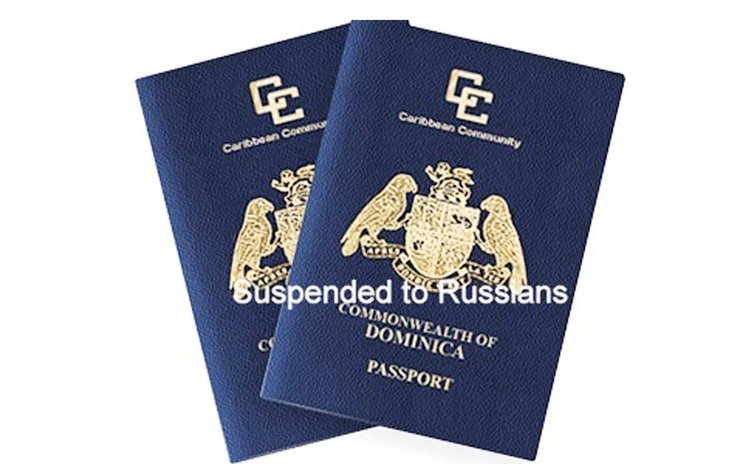When all our eggs are in one basket

Over the last two decades, we were seemingly putting all our eggs into a single, fragile and shallow basket, the Citizenship by Investment programme (CBI), and we stubbornly and foolishly ignored the advice of friends and foes alike that this policy was inviting disaster if, and when, the basket of eggs capsizes.
In early 2022, Putin's war has apparently sealed the CBI's fate.
Now that the basket of eggs is about to be crushed, let the blame game begin. This eventual death of our new mono-crop was predicted, by many people, more than two decades ago. But our country's Prime Minister and Minister of Finance, Roosevelt Skerrit, stuck to his economic strategy, an over-reliance on the selling of passports.
If not the CBI, then what, he reportedly said at one point.
Awash in cash over the past decade by the sale of thousands of passports, Dominica could not see beyond its short nose, could not cushion itself for the crash of the CBI by significantly developing agriculture, tourism and manufacture industries, could not put sufficient resources into education and health, could not put money aside for mega-storm days that we knew would, not could, certainly come.
Vladimir Putin, Russia's dictator, has shown how foolish we have been.
Since Russia invaded Ukraine more than two weeks ago there has been much talk of the crash of the CBI programme all over the world as Europe, UK, the USA and much of the rest of the world has moved to punish Putin's Russia with sanctions.
As the SUN reported recently, the various projects to be funded by the CBI programme as announced by Skerrit in his 30 July 2021 budget address – a $500,000 monthly deposit into a vulnerability and risk resilience fund, a public sector investment programme, construction of the international airport and construction of several hotels – could be at risk if the CBI is affected by the war.
In that story, Crispin Gregoire, a former ambassador to the United Nations, told The Sun Russian business interests in the CBI programme will take a hit from the sanctions imposed on Moscow by western countries, and this will hurt projects in which they are involved here.
In last year's budget address, Skerrit did not say how much the country was projected to earn from the sale of passports. No one seems to know, the opaqueness of Dominica's CBI programme is staggering. However, Skerrit indicated at the time that non-tax revenue of $492.3 million "reflected mainly by CBI revenues" was expected to play a significant role in stabilising the government's finances.
According to Gregoire: "We've had some links with both Ukraine and Russia through the economic citizenship [programme]. I know for sure that we have in excess of 500 nationals from that region, from both countries - more Russians than Ukrainians - who are economic citizens. So I don't know if any of the financial sanctions will have an impact on companies that may have an interest in Dominica. The sanctions on Russian oligarchs could [also] have adverse implications for visa-free travel into the Schengen area for Russian nationals with Dominican economic citizenship and Dominica passports."
As Russian forces moved into neighbouring Ukraine on 24 February, international oil prices surged, with Brent crude climbing to a high of $105.79 – the highest since 2014 - and WTI hitting $99.10. Last Friday, local prices of petroleum jumped to EC$14.89 per gallon.
Russia's actions have provoked widespread condemnation, including from the Caribbean Community, which issued a statement "strongly" condemning the invasion and calling for an "immediate and complete withdrawal" of military forces from the Eastern European country.
The Skerrit administration issued a five -sentence statement condemning the military action and calling for an end to the conflict. Notably, the Skerrit statement was, apparently, in conflict with the positions of "good friends" Cuba, China and Venezuela who all supported Russia's invasion of Ukraine.
But what the statement did not address was the potential impact of this war on ordinary Dominicans, including how it will affect the cost of living and how the government intends to help the country cope, especially with the expected negative impact on the CBI.
As our front-page story indicates, the Congress of the United States of America and the European Union were in the process of introducing legislation to curb the sale of "golden passports" especially to rich Russians.
"Parliament stresses that 'citizenship by investment' (CBI) schemes, under which third country nationals obtain citizenship rights in exchange for a sum of money, undermine the essence of EU citizenship," the EU parliament stated. "Parliament describes the practice -in place in Malta, Bulgaria and Cyprus- as "free riding", as member states sell what was never intended to become a commodity".
Members of the Parliament of the EU have been calling for the termination of CBI programmes since 2014, but the issue is gaining renewed focus in light of the Russian oligarch's penchant for such programmes, said Brad Gershel in "Money Laundering Watch".
We hope the CBI survives this latest crisis because the pain Dominicans will feel if the programme collapses will be unbearable. But if, through some good fortune the programme continues, we would advise the government to prepare the country for future shocks like the Ukraine war by immediately pumping funds from the CBI into the productive sectors- agriculture, tourism and manufacturing.




